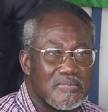Over 33,000 civil servants out of the about 42,000 currently working under the Civil Service are to be redeployed to the Local Government Service (LGS) beginning January 1, 2007 to accelerate and consolidate the process of decentralization.
"We have the political will and commitment from the highest authority, whilst national bureaucrats have been sensitised to cede power and control to the assemblies and the assemblies psyche up to build the capacity to absorb the decentralized management," Mr Joe D. Issachar, Head of Civil Service stated at Sogakope on Saturday.
Mr. Issachar was addressing Chief Directors of Ministries, Regional Coordinating Councils Directors, Members of Parliament and Senior Civil Servants at a three-day capacity workshop on; "Integration of Line Departments Into the Fold of Metropolitan, Municipal and District Assemblies (MMDAs).
"The LGS Act 2003, (Act 656) establishes a single unified Local Government Service for all the local authorities in Ghana.
He explained that Section 34, stipulates, "on the coming into force of the Act the members of staff of the 14 civil service departments listed in the schedule shall be deemed to have been transferred to a Department of a District ... to form part of the service from the date of transfer.
"The workshop was organized by the Local Government Service Council in collaboration with the Ministry of Local Government, Rural Development and Environment and UNDP.
It was to discuss the integral part of the communication strategy of the service to build bridges to stakeholders at all levels, foster consultation, collaboration and coordination with other stakeholders to push the implementation of the programme of decentralization forward.
The personnel have been classified under 11 decentralized departments, Central administration, Finance, Education Youth and Sports, Health, Agriculture, Physical Planning, Social Welfare and Community Development, Natural Resources Conservation, Works, Trade and Industry, and Disaster Prevention.
Mr Issachar explained that functions previously performed by branches, divisions or units of the departments to be transferred have been identified and merged with those of the assemblies.
On staff ranking at the decentralized departments at the assemblies, the Head of the Civil Service said they would be identified by age, rank, qualification and skills before transferred to form part of the Local Government Service.
Mr. Issachar noted that all Chief Directors, including the regional coordinating Directors are to communicate the envisaged changes to their respective regional and district officers, especially the new performance appraisal system, control and reporting mechanism to guide staff assessment and development for efficient performance.
In an interview with the Ghana News Agency, Nana Rex Owusu-Ansah Acting Head of the Local Government Service explained that the process was to integrate the decentralization process, which involves the devolution of central administrative authority to sub-national governments.
He noted that the integration process had gone through major re-organisation of departments at the district level - identifying the presence of line departments, defining and clarifying their functions, structure, job description of head of departments, and scheme and condition of service for personnel of the departments.
The decentralization of 22 functional areas of government to the sub-national governments, fussion of government agencies at the sub-national level and local governments units into one administrative unit "Single Hierarchy Model," through the process of institutional integration, manpower absorption, composite budgeting and provision of funds for the decentralized services.
Nana Owusu-Ansah said the promotion of popular grass-root participation in the administration of the various areas concerned from the stand points of planning, implementation, monitoring and achievement of those services, which go to improve the living conditions of the people and the orderly, fair and balanced development of the whole country.
The Acting Head of the Local Government Service, who is also the Board Chairman of the Ghana News Agency said under the comprehensive local government and administrative reforms, "the Central Government Ministries, Departments and Agencies are to undertake policy planning, monitoring and evaluation of development policies and programmes.
"Regions, through the Regional Coordinating Councils and respective Regional Planning and Coordinating Units, now play an important role of coordination, not in regular manner, but ensure consistency, compatibility and coherence of district level development, facilitate joint ventures among districts and monitor the activities of District Assemblies within the regions.
The District Assembly is primarily responsible for the implementation of development policies and programmes coordinated by the National Development Planning Commission.
In a speech read on his behalf, Dr. Paa Kwesi Nduom, Minister of Public Sector Reform said as a first step for implementation of the reforms, government had introduced and passed new legislation, which gave legal backing to the movement of some parts of government machinery from the centre to the districts and municipalities.
"The first Ghana Poverty Reduction Strategy (GPRS I) defined a programme of decentralization that even promised to remove the barriers that prevented the election of District Chief Executives," he told the participants.
Dr Nduom said the Government is committed to ensure the movement of civil servants from the office of Civil Service to the Local Government Service by first January, 2007.
"We will work with the Ministry of Local Government, Rural Development and Environment, the Ministry of Finance and Economic Planning and Development Partners to ensure that there is a common resources pool, with a single reform agenda aimed at accelerating the pace of decentralization.
"Support Local Government to use legislation to make clearer Government's commitment to decentralization and use the Public Sector Reform Work Programme to promote decentralization in visible and concrete terms," he said.







